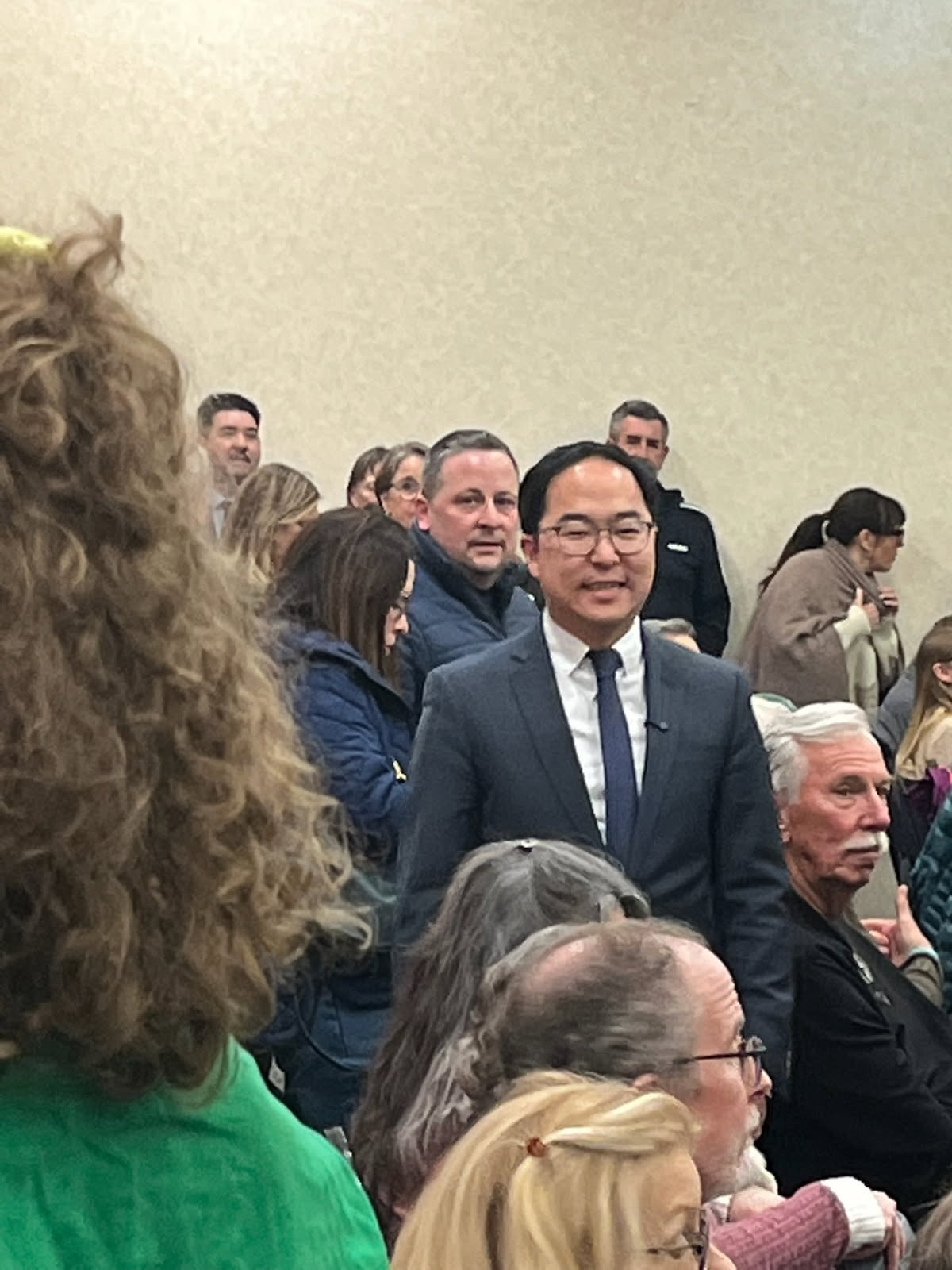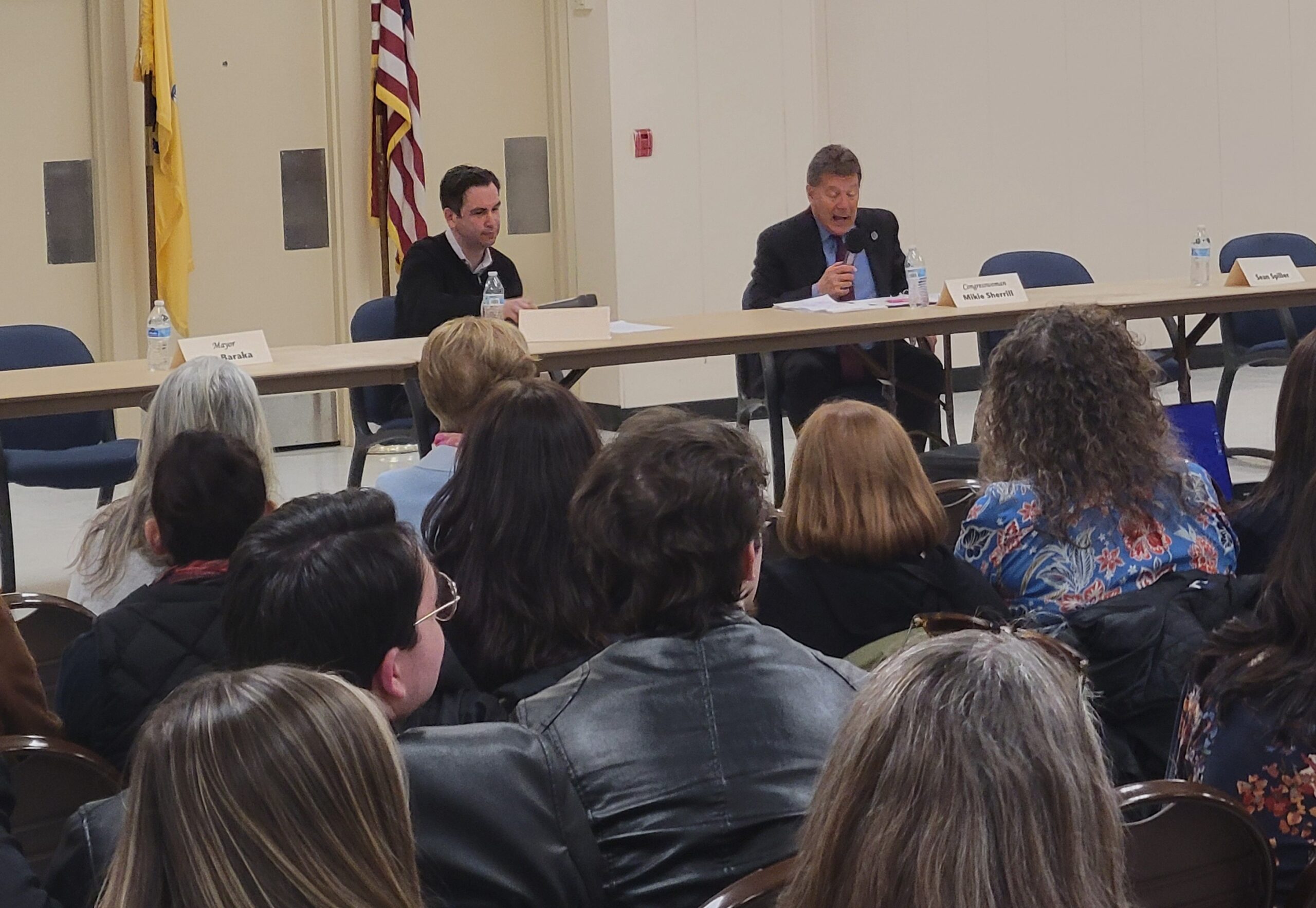
Labor Day used to be the “start” of the campaign season.
Now that politics is all encompassing, that’s no longer true. Nonetheless, political campaigns still see the holiday as a time to focus, or perhaps refocus, on the task ahead.
To that end, Laura Ali, the Morris County Republican chair, recently sent out a campaign update highlighting the fact that:
“The latest polling data has (Senate candidate) Curtis Bashaw within the margin of error. This is a great opportunity for everyone on the ballot and will make a huge difference in many of our close races.”
Beyond that, Ali says of her opponents:
“The Democrats have the same old playbook here in Morris County: Abortion. Abortion. Abortion and creating panic in all of the suburban towns in which we live.”
At just about the same time, the Senate campaign of Democrat Andy Kim sent out a release that was about – abortion, thereby giving credence to Ali’s point.
The Kim release accused Bashaw of supporting an extremist agenda, “which would include banning reproductive freedoms across the country, leaving millions of women’s lives in peril.” (And presumably creating panic in suburbia).
The release included newspaper columns and editorials questioning the “pro-choice” position of Bashaw.
The fact Democrats constantly talk about abortion is certainly true.
But that’s because it works. Therein lies the challenge for Republicans.
The brief political history since the overturning of Roe v. Wade in June of 2022 is clear.
There have been six state referendums on abortion and the abortion rights side has won all six – even in such conservative states as Ohio and Kansas.
Democrats, just about all of whom are pro-choice, did better than anticipated in the 2022 midterms and that pattern continued in 2023. That was the year of the Ohio referendum and also the reelection of the Democratic governor of Kentucky. Let’s not forget New Jersey, where Democrats picked up six seats in the state Legislature.
Clearly, as the Kim campaign is showing, Democrats are going to keep talking about abortion as long as the issue continues to resonate. And who can blame them?
The question going forward is how long will the issue resonate? Is there a shelf life?
One answer is that the issue will continue as long as some states severely restrict abortion and there is talk – in some quarters – about a nationwide ban.
That could be for a long time.
But as Ali’s message explains, this is what Republicans want the election to be about in Morris County and probably across the nation as well.
“Lack of security in our towns and country; Crippling Inflation; Incompetent Leadership; Overdevelopment.”
(Visited 9 times, 9 visits today)
Roe v. Wade is one of the most well-known and controversial Supreme Court cases in American history. The case, decided in 1973, established a woman’s legal right to have an abortion under the Fourteenth Amendment to the Constitution. The decision has had a profound impact on the reproductive rights of women in the United States and continues to be a hotly debated issue.
The case originated in Texas, where a woman named Norma McCorvey, using the pseudonym Jane Roe, sought to have an abortion but was denied under state law. McCorvey challenged the constitutionality of the law, arguing that it violated her right to privacy. The case eventually made its way to the Supreme Court, where it was decided in a 7-2 ruling in favor of Roe.
The majority opinion, written by Justice Harry Blackmun, held that a woman’s right to choose to have an abortion fell within the right to privacy protected by the Fourteenth Amendment. The decision established a trimester framework for regulating abortion, with more restrictions allowed as the pregnancy progressed. This framework has since been modified by subsequent Supreme Court decisions, but the core holding of Roe v. Wade remains intact.
The case has had a lasting impact on American society, sparking intense debate and activism on both sides of the issue. Proponents of abortion rights argue that the decision was a landmark victory for women’s rights and reproductive freedom. They point to the fact that before Roe v. Wade, many women were forced to seek unsafe and illegal abortions, putting their health and lives at risk.
Opponents of abortion rights, on the other hand, argue that the decision was an overreach by the Supreme Court and that it has led to the deaths of millions of unborn children. They have worked tirelessly to overturn or restrict the decision through legislation and legal challenges.
Despite the ongoing controversy surrounding Roe v. Wade, it remains the law of the land in the United States. The decision has shaped the legal landscape of reproductive rights and continues to be a focal point of political debate. As the Supreme Court continues to evolve and new justices are appointed, the future of Roe v. Wade remains uncertain. Only time will tell how this landmark case will continue to impact American society in the years to come.



